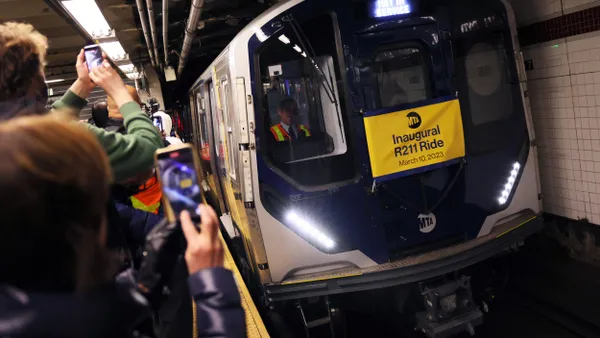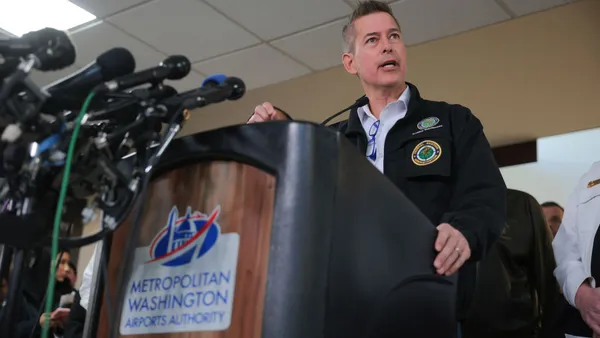Dive Brief:
- U.S. Army base Fort Carson will partner with the City of Colorado Springs, CO and the University of Colorado’s Research and Engineering Center for Unmanned Vehicles (RECUV) on a testbed and pilot program for autonomous vehicles (AVs), nonprofit US Ignite announced Thursday.
- The program will begin with two autonomous shuttles on base and will explore developing new sensor and AV technologies to improve road safety and decrease congestion at the installation and the surrounding area.
- The $4 million initiative will look to reduce transportation costs, improve public safety and deliver faster services, with a view to help future smart military installations nationwide. The effort is funded by the U.S. Army Engineer Research and Development Center (ERDC).
Dive Insight:
While autonomous shuttles have been gaining traction in some cities, they have also seen some limited use on military bases, as leaders across the armed forces look to modernize installations and make them smarter. Autonomous shuttles have already started to grow onto some bases. Local Motors announced earlier this year that its Olli shuttle would start serving Joint Base Myer-Henderson Hall in Arlington County, VA.
There are signs that more cities are seeking closer relationships with nearby military bases as they look to get "smarter." San Diego recently signed a memorandum of understanding (MOU) with the United States Marine Corps to partner on smart city technology research and implementation.
During the Smart Cities Connect conference in National Harbor, MD on Wednesday, Jerry Davis, laboratory program manager at the National Renewable Energy Laboratory, noted the parallels between cities' efforts to get smarter, and military bases' similar efforts to become what he called "smart installations."
For one, efforts to bolster cybersecurity are key. Cities including Baltimore and Atlanta have dealt with significant cyberattacks in recent years. And as cyber warfare becomes a more widely-used tactic, it is imperative to keep military bases safe too.
"The military has a lot at stake with its mission, and cities do as well, so there's definitely some common ground," Davis said during a panel discussion. He added that the growth of drone missions from bases also means that cybersecurity element is crucial. Drone use is something that cities are exploring, as well.
Davis said that while carrying out research and experimenting with new tools and initiatives, the military is less concerned about a 100% success rate, and is more focused on moving the ball forward. That parallels warnings from the likes of former Maryland Gov. Martin O'Malley, who has said previously that the "fear of failure" in government can be crippling and must be overcome.
"To a certain extent, [the military is] not afraid to fail," Davis said. "They'll invest some money in something that as long as it doesn't compromise the mission, maybe it's a building efficiency technology, and they'll accept a level of failure that industry may not or the commercial sector."
While AVs are still some way off from being rolled out on a large scale, having the clout of an army research arm behind them could help move things along. With military research and development responsible for introducing innovations like GPS, this partnership could accelerate the growth of AVs and help cities and the military understand how to better use them.











